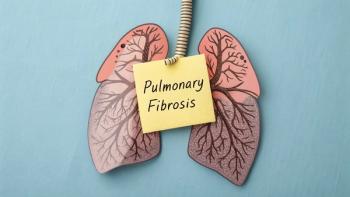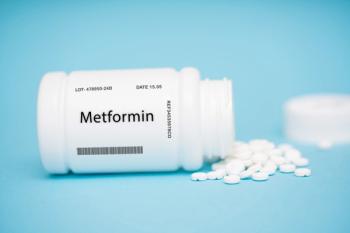First oral blood thinner for children is approved. The FDA has approved Boehringer Ingelheim’s Pradaxa (dabigatran etexilate) oral pellets to treat children three months to less than 12 years old with venous thromboembolism directly after they have been treated with a blood thinner given by injection for at least five days. The FDA also approved Pradaxa oral pellets to prevent recurrent clots among patients three months to less than 12 years old who completed treatment for their first venous thromboembolism.
Pradaxa was originally approved in 2010 to reduce the risk of stroke and systemic embolism in adult patients with non-valvular atrial fibrillation.
PDUFA date passes with no action on Rinvoq. The FDA will not meet the Prescription Drug User Fee Act (PDUFA) action dates for the supplemental New Drug Applications (sNDAs) for Rinvoq (upadacitinib) for the treatment of adults with active psoriatic arthritis and adults with active ankylosing spondylitis. The FDA cited its ongoing review of Pfizer's post-marketing study, ORAL Surveillance, evaluating tofacitinib in patients with rheumatoid arthritis.
No formal regulatory action has been taken on the sNDAs for Rinvoq in psoriatic arthritis and ankylosing spondylitis.
Janssen submits NDA for use of Xarelto in children. The Janssen Pharmaceutical Companies of Johnson & Johnson has submitted a New Drug Application (NDA) to the FDA for the use of Xarelto (rivaroxaban) in pediatric patients. The NDA seeks two pediatric indications: treatment of venous thromboembolism (VTE) and reduction in the risk of recurrent VTE in patients aged birth to less than 18 years of age; and thromboprophylaxis in patients aged 2 years and older with congenital heart disease who have undergone the Fontan procedure.
The application is based on data from studies of Xarelto in adults, as well as data from two phase 3 clinical trials in pediatric populations: EINSTEIN-Jr and UNIVERSE. The EINSTEIN-Jr trial, published in the January 2020 issue of The Lancet Haematology, found that children treated with rivaroxaban had a low recurrence risk and reduced thrombotic burden without increased bleeding compared with standard anticoagulants.
The UNIVERSE trial is a two-part phase 3 trial examining children aged two to eight years who had the Fontan procedure, which is used for children born with congenital heart disease that redirects blood flow from the lower body to the lungs. Thrombosis can be a complication of this procedure.
Bayer submits application for cancer combination. Bayer has submitted a supplemental new drug application (sNDA) to the FDA and a marketing authorization application to the European Medicines Agency (EMA) seeking approval of the investigational combination of the cancer treatments Aliqopa (copanlisib) and rituximab.
The U.S. submission is for the treatment of patients with relapsed indolent B-cell non-Hodgkin’s Lymphoma (iNHL) and is outside of the FDA accelerated approved indication for the treatment of adult patients with relapsed follicular lymphoma who have received at least two prior systemic therapies. In the EU, Bayer has filed for the treatment of relapsed marginal zone lymphoma, a subtype of iNHL, and the filing has been accepted. The submissions are supported by positive results from the phase 3 trial CHRONOS-3, which published in The Lancet Oncology in April 2021.
Anylam Pharmaceuticals submits NDA for rare disease therapeutic. The FDA has accepted the Anylam Pharmaceuticals’ New Drug Application for vutrisiran, an investigational RNAi therapeutic for the treatment of the polyneuropathy of hereditary transthyretin-mediated (hATTR) amyloidosis in adults. The FDA has set an action date of April 14, 2022, under the Prescription Drug User Fee Act (PDUFA).
The filing was based on the results of the phase 3 HELIOS-A trial, in which after nine months, vutrisiran met primary and all secondary endpoints, with statistically significant improvements in neuropathy, quality of life (QoL), and gait speed, relative to placebo. Presented at the 2021 American Academy of Neurology (AAN) Virtual Annual Meeting, the data presented by investigators found that in the majority of patients, vutrisiran reversed polyneuropathy manifestations with improvements in neuropathy. Vutrisiran also demonstrated an encouraging safety profile with no drug-related discontinuations or deaths.
Vutrisiran has been granted Orphan Drug Designation, as well as a Fast-Track designation in the United States for the treatment of the polyneuropathy of hATTR amyloidosis in adults.
Prostate cancer drug nabs breakthrough therapy designation. The FDA has granted Breakthrough Therapy Designation (BTD) to Novartis’s targeted investigational radiation therapy, 177Lu-PSMA-617 for the treatment of patients with metastatic castration-resistant prostate cancer (mCRPC).
The designation is based on positive data from the pivotal phase 3 VISION study, which demonstrated that the targeted radioligand therapy plus standard of care (SOC) significantly improved overall survival and radiographic progression-free survival for men with progressive PSMA-positive mCRPC2 compared with SOC alone.
The therapy is being developed by Advanced Accelerator Applications, a Novartis company.
Another Biogen/Eisai Alzheimer’s therapy gets Breakthrough Designation. The FDA has granted Breakthrough Therapy Designation for lecanemab (BAN2401), an investigational anti-amyloid beta (Aβ) protofibril antibody for the treatment of Alzheimer’s disease.
The designation is based on the recently published results of a phase 2b clinical trial (Study 201) of 856 patients with mild cognitive impairment due to Alzheimer’s disease and mild Alzheimer’s disease. The proof-of-concept Study 201 explored the impact of treatment with lecanemab on reducing brain amyloid beta (Aβ) and clinical decline.
Lilly’s Alzheimer’s therapy receives Breakthrough Therapy designation. The FDA has granted Breakthrough Therapy designation to donanemab, Lilly’s investigational antibody that targets a modified form of beta amyloid called N3pG. Lilly intends to submit a biologics license application for donanemab under the accelerated approval pathway later this year based on data from TRAILBLAZER-ALZ. The safety, tolerability and efficacy of donanemab are also being evaluated in the ongoing randomized, placebo-controlled, double-blind, multi-center phase 3 study TRAILBLAZER-ALZ 2.
Data from the phase 2 trial, TRAILBLAZER-ALZ were recently published in the New England Journal of Medicine. Investigators in this trial found that donanemab resulted in a better composite score for cognition and for the ability to perform activities of daily living than placebo at 76 weeks, although results for secondary outcomes were mixed.
Investigational lung cancer therapy receives Breakthrough Designation. The FDA has granted Breakthrough Therapy designation to adagrasib, an therapy for the treatment of patients with non-small cell lung cancer (NSCLC) who harbor the KRASG12C mutation following prior systemic therapy. This is supported by results from the registrational phase 1/2 KRYSTAL-01 trial in patients with advanced NSCLC, whose cancer had progressed following prior treatment with immunotherapy and/or chemotherapy. Adagrasib is being developed by Mirati Therapeutics.
FDA approves generic version of COPD therapy Brovana. The FDA has approved Cipla’s abbreviated New Drug Application (ANDA) for arformoterol tartrate inhalation solution, a generic equivalent of Sunovion Pharmaceuticals’ Brovana for the maintenance treatment of bronchoconstriction in patients with chronic obstructive pulmonary disease (COPD), including chronic bronchitis and emphysema. The therapy is available now.
Teva launches generic version of Perforomist. Teva Pharmaceuticals has launched the first generic version of twice daily Perforomist, formoterol fumarate inhalation solution, 20 mcg/2 ML, indicated to treat bronchoconstriction in patients with chronic obstructive pulmonary disease (COPD), including chronic bronchitis and emphysema.
Formoterol fumarate inhalation solution is a long-acting beta2 adrenergic agonist (LABA) used to control the symptoms of COPD in adults with COPD. COPD is a chronic lung disease that includes chronic bronchitis, emphysema, or both. It is only for use with a nebulizer.


























